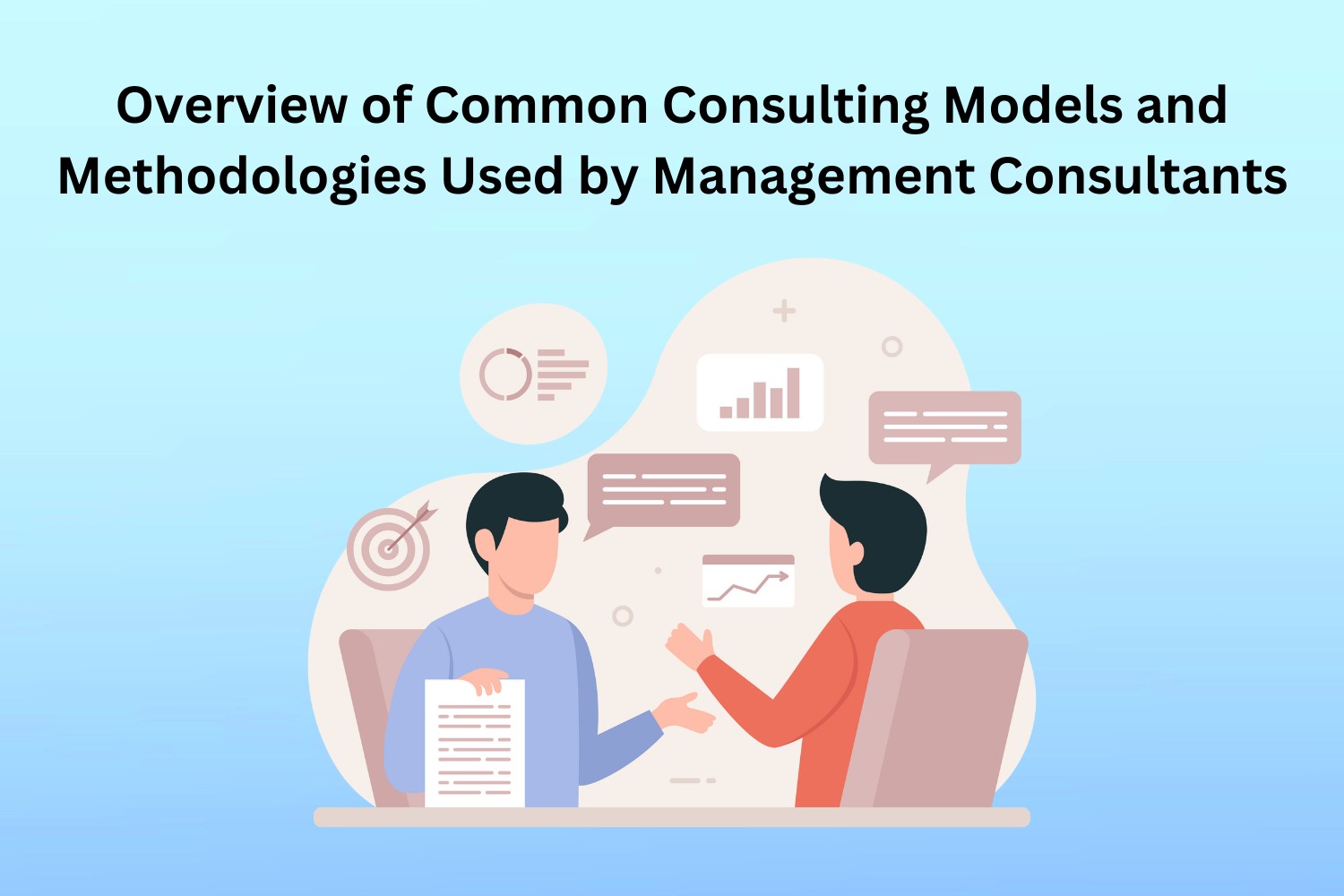Management Consultant helps with complex challenges, new strategies, and overall organisational growth. Management Consultant offers advisory services to help businesses improve performance, streamline processes, and reach objectives. It is recommended that you undergo Management Training as it enables you to understand management skills better and provides you with the skills required by a management consultant.
Management consultants use various consulting models and methodologies, each adapted to the unique requirements of a client’s project, to provide high-quality service. This blog will provide insight into management consultants’ most popular consulting models and methodologies, illuminating their salient features, practical uses, and advantages.
Who is a Management Consultant?
Organisations in a wide range of sectors often seek the advice and expertise of management consultants. Improve your company’s performance, efficiency, and overall effectiveness with the help of these consultants. They are experts at analysing business problems, creating strategies, and implementing solutions. In their typical role as management consultants, they assist clients in assessing current conditions, developing potential solutions, and providing necessary resources to implement those plans.
Management consultants work for consulting firms or operate independently as freelance consultants. Their possible areas of expertise include organisational change, strategy, operations, finance, HR, and IT. Specialist consulting services are available for those in the healthcare, banking, manufacturing, or technology sectors.
Consulting with clients to learn about their problems, goals, and limitations is essential to any management consultant’s job. To meet the demands of their clients, consultants undertake research, collect data, analyse information, and provide practical insights and suggestions. As the implementation progresses, they frequently work with critical stakeholders, lead meetings and workshops, and offer advice and assistance.
Common Consulting Models and Methodologies
McKinsey 7-S Framework
The 7-S Framework was created by consulting firm McKinsey & Company as a diagnostic tool for assessing organizational effectiveness and alignment. A company’s strategy, structure, systems, shared values, style, personnel, and abilities are the seven pillars upon which the framework rests. Management consultants can help organisations achieve their goals by taking a comprehensive look at these factors, which allows them to pinpoint their strengths and areas for growth. Then, they can create individualised plans to bring about change and alignment.
SWOT Analysis
An easy-to-understand but highly effective framework for evaluating a company’s fortes, weaknesses, opportunities, and threats is the SWOT analysis. A SWOT analysis aims to help management consultants better understand their clients’ internal and external environments, set strategic priorities, and make better decisions. To help organisations achieve their objectives more effectively, consultants can develop strategies by evaluating these factors. These strategies can address weaknesses, capitalise on opportunities, and mitigate threats.
Balanced Scorecard
Balanced Scorecard, a practical strategic management framework, breaks down an organization’s goals and strategies into four areas: financial, customer, internal business processes, and learning and growth. Organisational activities can be better aligned with strategic objectives, performance can be monitored, and continuous improvement can be driven with the help of management consultants and the Balanced Scorecard. Organisations can monitor development, pinpoint problem areas, and foster buy-in at every level by outlining specific objectives and performance indicators for each viewpoint.
Kotter’s 8-Step Change Model
Professor John Kotter of Harvard Business School established an organised method for leading organisational change with his 8-Step Change Model. Successful change initiatives follow a specific eight-step model: establish a feeling of urgency, build a solid guiding coalition, make a vision and strategy, communicate the vision, empower employees, create short-term wins, consolidate gains, and anchor the change in the culture. To help businesses change, management consultants employ Kotter’s model to map out the steps involved, pinpoint any obstacles, and rally stakeholders behind the initiative.
Agile Methodology
Agile methodology originated with software development and is now widely used across industries due to its adaptability and iterative approach to project management. In order to improve teamwork, communication, and responsiveness to changing needs, management consultants use Agile principles and practices. Organisations can respond to market demands more quickly and deliver more value to clients with Agile because it breaks projects into small, manageable increments, prioritises customer feedback, and embraces change.
Lean Six Sigma
Lean Manufacturing and Six Sigma quality management are brought together in Lean Six Sigma, a data-driven approach to process improvement. Improvements in process efficiency and effectiveness, and the elimination of waste and variation, can be achieved through management consultants implementing Lean Six Sigma. Consultants can find the source of issues, apply solutions, and evaluate the effect of process improvements on essential performance metrics using statistical tools and techniques like DMAIC (Define, Measure, Analyse, Improve, Control).
Conclusion
Management consultants are indispensable when it comes to overcoming challenges, capitalising on opportunities, and reaching strategic goals. Management consultants help their client’s businesses grow and expand by utilising their knowledge, skills, and analytical abilities.
Management consultants can adapt to their clients’ needs and the dynamic nature of the business world by using consulting models, methodologies, and management training to bring about constructive change, encourage innovation, and generate value.




